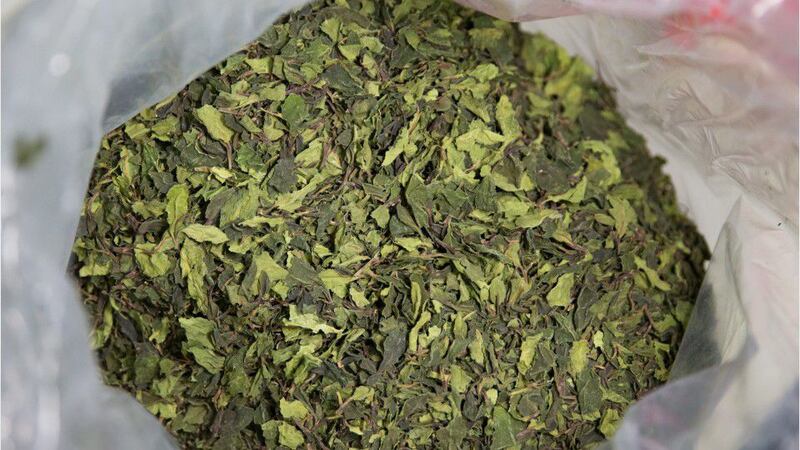SEATTLE — More than 10 tons of khat were seized in Seattle on May 27, in a joint operation involving U.S. Homeland Security agencies, U.S. Customs and Border Protection and the U.S. Coast Guard.
Classified by the U.S. Drug Enforcement Administration as a Schedule I narcotic, khat is a stimulant made from leaves and twigs native to the Arabian Peninsula and many parts of Africa that contains cathinone, a highly addictive stimulant that has been classified as a controlled substance in the U.S. since 1987.
According to a news release issued by CBP, the khat shipment was en route to Seattle from Kenya – manifested as dried tea leaves – and its May 27 interception represents the largest drug seizure to date in the Puget Sound area.
Per the news release, samples were extracted from a suspect container and confirmed by the U.S. Department of Agriculture’s Animal and Plant Health Inspection Service to have presumptively tested positive for cathinone.
According to the agency, a total of 623 boxes were seized and determined to contain roughly 20,215 pounds of khat, with an estimated street value of $3.6 million.
According to the DEA, khat is also known by the following street names: Abyssinian tea, African salad, catha, chat, kat, miraa, oat, qat and quaadka.
“This khat seizure demonstrates Customs and Border Protection officers’ effectiveness, dedication and expertise searching through the tens of thousands of international containers to find the proverbial needle in the haystack,” J. Rene Ortega, CBP’s Port Director for the Area Port of Seattle, said in a prepared statement.
“Khat remains illegal to import into the United States, and CBP officers will continue to seize khat and all illicit substances that pose a threat. Drug interdiction at our nation’s borders is one of many ways in which CBP helps to keep our communities safe,” Ortega added.
©2022 Cox Media Group








